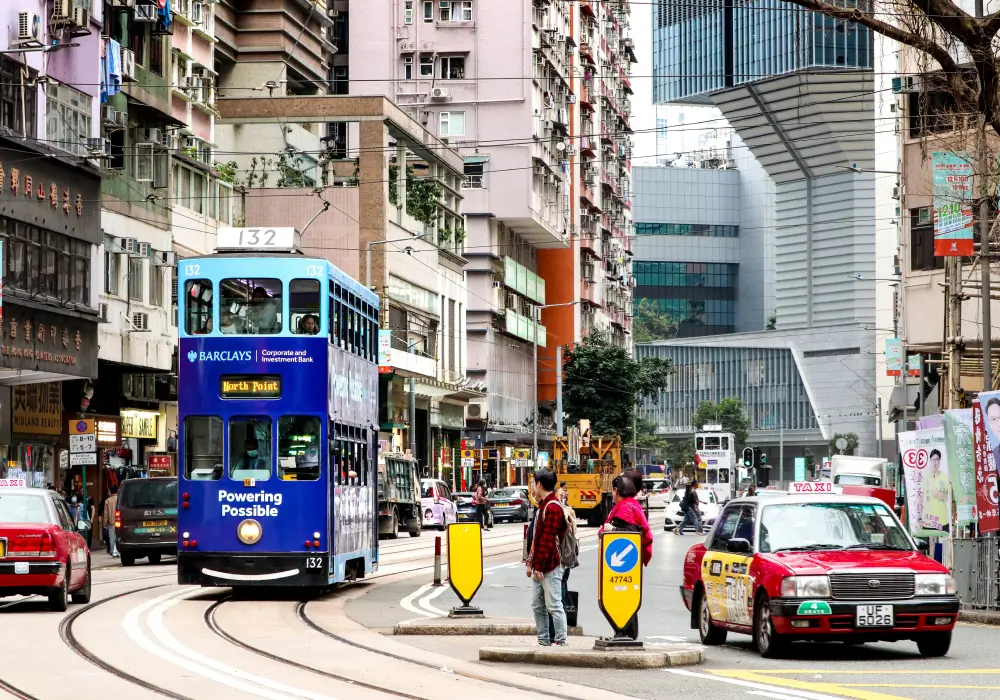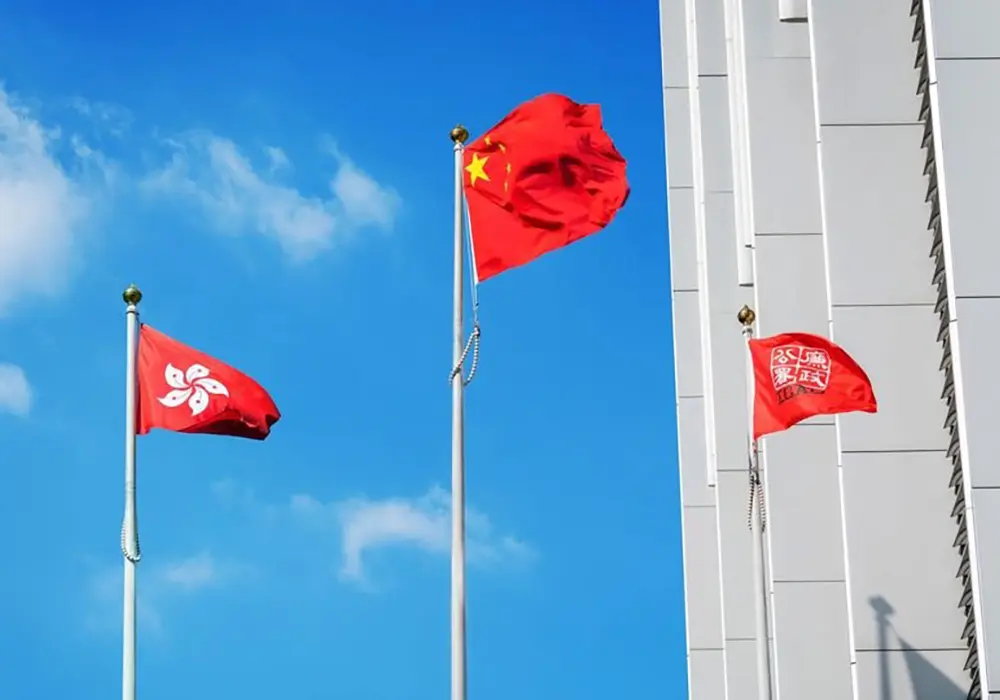
Navigating Our Post-secondary Education Network
- 21 Apr 2023
- Education
With a stellar global reputation for higher education, Hong Kong is a great place for your children to complete their education, or for you to embark on academic studies once more, whether it’s enrolling in an MBA to sharpen your business knowledge and management skills or completing an MA in something that’s always interested you. As of today, there are 22 local degree-awarding post-secondary institutions in Hong Kong, 9 of which are publicly funded and 13 are self-financing. Starting from the 2024/25 academic year, the admission quota of non-local students to government-funded post-secondary institutions will be doubled to 40%.
Before scouring university websites for the perfect course, rest assured that Hong Kong’s higher education institutions are recognised as leading institutions on various international league tables. Five of our institutions ranked among the top 100 in the Quacquarelli Symonds (QS) World University Rankings 2024, i.e. The University of Hong Kong at #26, the Chinese University of Hong Kong at #47, the Hong Kong University of Science and Technology at #60, the Hong Kong Polytechnic University at #65 and City University of Hong Kong at #70. Our business administration programmes are among the best in the world. Our universities are committed to conducting world-class research in diversified fields and have won global recognition. The University Grants Committee (UGC)-funded universities provide a first-class research environment that facilitates scholars’ pursuit of research excellence.
Besides the UGC-funded universities, there is a vibrant self-financing post-secondary education sector in Hong Kong comprising a diverse range of institutions, from private universities providing applied and liberal arts education to specialised boutique institutions providing healthcare or early childhood education. Hong Kong has a robust and stringent quality assurance regime for the self-financing post-secondary sector. It is administered by the Hong Kong Council for Accreditation of Academic and Vocational Qualifications (HKCAAVQ). Its stringent standards have made it internationally recognised as the only quality assurance agency in the Asia Pacific to attain recognition by both the International Network for Quality Assurance Agencies in Higher Education and the European Association for Quality Assurance in Higher Education.
Hoping to get into a university in Hong Kong? Local students taking the Hong Kong Diploma of Secondary Education Examination (HKDSE) at Hong Kong’s public secondary schools, with a minimum of level 3 for Chinese Language and English Language, level 2 for Mathematics Compulsory Part, and ‘Attained’ for Citizenship and Social Development, are eligible to apply for the undergraduate programmes offered by the UGC-funded institutions. For non-local students, don’t fret: internationally recognised curricula such as the International Baccalaureate (IB) Diploma and General Certificate of Education (GCE), among many others, are widely recognised by universities and post-secondary institutions in Hong Kong.
In addition to publicly-funded programmes, students can choose from a wide range of self-financing undergraduate and sub-degree programmes. These are subsidised by the Study Subsidy Scheme for Designated Professions/Sectors (SSSDP) and the Non-means-tested Subsidy Scheme for Self-financing Undergraduate Studies in Hong Kong (NMTSS), Various vocational and professional education and training (VPET) programmes are also available, catering to diverse interests and ability. These range from Applied Degrees in Nursing and Hospitality Management to Higher Diplomas in Mechanical Engineering and Construction Technology — all with an applied focus.
Once you or your children have found the right course and received a school acceptance letter, what’s next? For non-local students without a dependant visa, a student visa from the Immigration Department will be required. In addition, you’ll also need to note that tuition fees may vary widely according to institutions and programmes of study. At the Chinese University of Hong Kong, for example, international students pay HK$145,000 (around US$18,000) per annum. In contrast, dependants who have received Hong Kong permanent resident status can enjoy the local tuition fees, which are as low as HK$42,100 (around US$5,363) per annum for the UGC-funded programmes.
Before you start getting out the calculator and doing the budgeting, you may be interested to know that there are multiple scholarship funds available for top talent. The Hong Kong Special Administrative Region Government Scholarship awards HK$80,000 (approximately US$10,300) annually for non-local students, recognising the achievements attained in the eight UGC-funded universities, the Hong Kong Academy for Performing Arts, and the Vocational Training Council. An equivalent scholarship is provided for non-local students with outstanding performance pursuing self-financing programmes under the Self-financing Post-secondary Scholarship Scheme. Additionally, the Belt and Road Scholarship, established to attract more outstanding students from countries and regions along the Belt and Road, provides financial support for those attending publicly-funded university studies in Hong Kong.
After completing your studies with qualifications and profound knowledge, it’s time to enter the world of work in Hong Kong, where there’s a buoyant job market. Demand for talent has reached a post-COVID-19 high, and Hong Kong job postings increased by more than 30% in the second quarter of 2023, according to Links International. A quick tip for non-local recent graduates looking for a longer stay for a job search: apply for the Immigration Arrangements for Non-local Graduates (IANG) scheme within six months of the date of your graduation from universities in Hong Kong or the GBA campus. Simply fill in the application form ID 990A, printed or online, and submit all supporting documents in accordance with the Immigration Department. You may be granted up to two years of extension of stay.
Not a graduate of Hong Kong or GBA campus but keen to apply to come and work in the city? You can explore the Top Talent Pass Scheme (TTPS), which provides up to 24 months of stay to degree graduates of the world’s top 100 universities in the past five years. It usually takes just four weeks for the Immigration Department to process visa applications under the schemes upon receipt of all the required documents. In a bid to attract top talent to Hong Kong, there are many more admissions schemes for professionals from different backgrounds, so please click here for more information.
Recent posts
-

Move to Hong Kong: Enjoy all-inclusive living amenities with family
- 31 Dec 2024
- Living & Tax
-

Hong Kong’s support for innovation and technology
- 20 Dec 2024
- Economic Developments & Potentials
-

Guide for non-local graduates seeking employment in Hong Kong
- 18 Dec 2024
- Living & Tax
-

The growing esports and gaming market in Hong Kong
- 29 Nov 2024
- Economic Developments & Potentials
-

Hong Kong's rise as a FinTech hub
- 28 Oct 2024
- Economic Developments & Potentials
-

Mastering market trends in Hong Kong to stay ahead of the curve
- 24 Oct 2024
- Economic Developments & Potentials
-

Tips for a stress-free relocation to Hong Kong
- 22 Oct 2024
- Living & Tax
-

Cost of Living in Hong Kong: accommodation, food, and transportation
- 15 Oct 2024
- Living & Tax
-

Elevate your creative career at the global stage of innovation in performing arts and art events
- 07 Oct 2024
- Economic Developments & Potentials
-

Thrive in Hong Kong: A promise of a clean and fair society for global talent
- 04 Oct 2024
- Living & Tax

